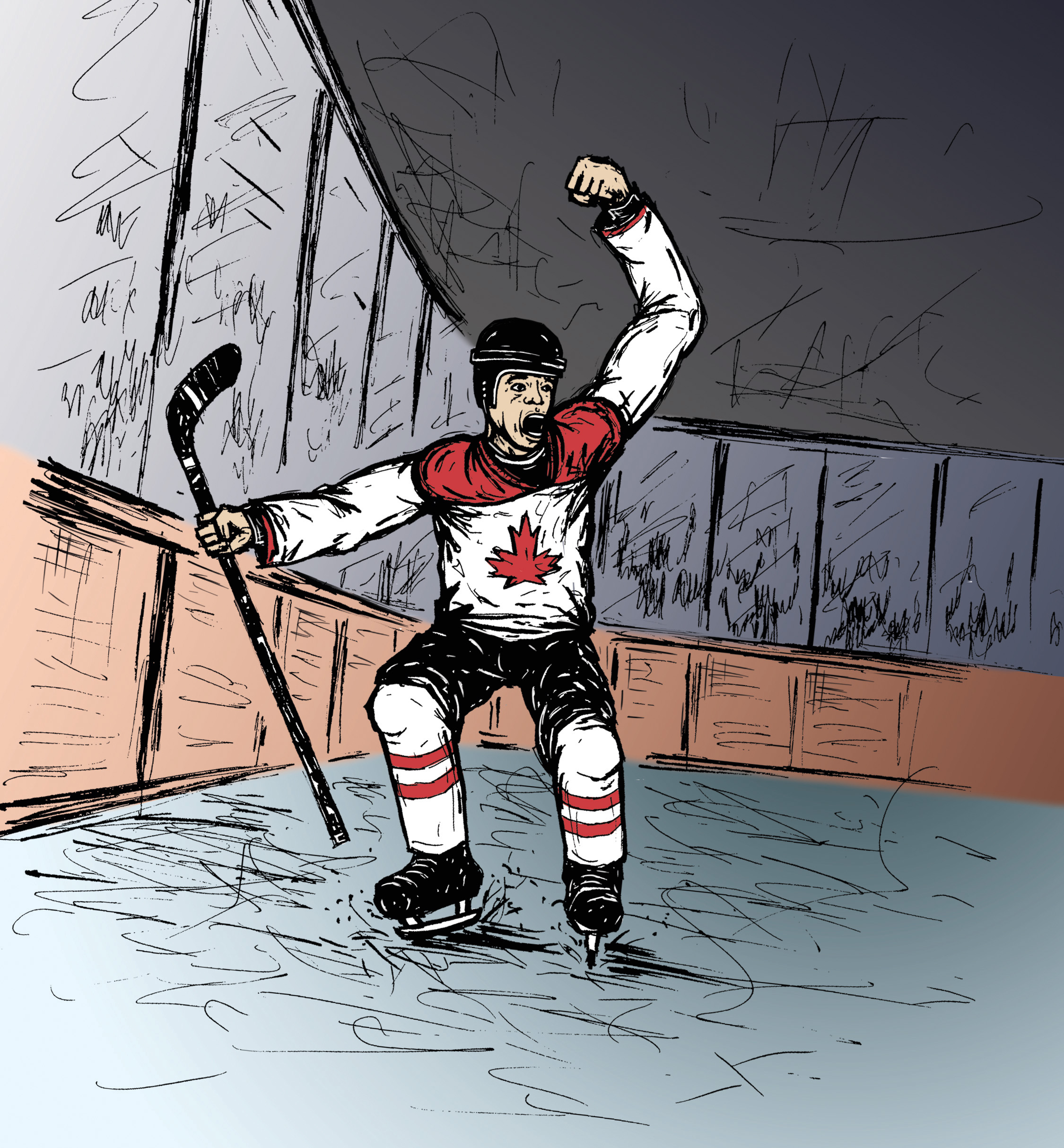Cycling in the city has clearly now been proven to be the best way to travel in Vancouver, no matter what the season. Cyclists during the Olympics enjoyed carless streets lined in Olympic green and blue clad “security” fences. Weaving through seas of nationalism effortlessly, as the meaty, sweaty masses piled endlessly into public transit in an attempt to appease the common interest. With all the traffic on the Skytrain, the roads presented blocks of “open ice” to the itinerant cyclist.
The influx of humans did present some interesting scenes. Every day, to make compost, I drag coffee grounds around with a trailer, picking them up on my way home, then dropping them at the community garden on my way back to work the next morning. The morning of the first day of the Olympics (when the Governator and crew were running the torch around), I had an interesting encounter. To take a break from promoting a free workshop that engages grade two to three classrooms in organic food gardening, I recounted what I’d seen hours previous:
Biking down Commercial Drive, the streets are lined with people in undertones of modern dress, over-toned in red plastic and textile from china. The nationalist fervour is rank. At the bottom of the hill I am greeted by police. Beyond them, filling the street (where cars usually roam), are people dancing, chanting and smiling. They all wear earth-tones or are robed in black: hipsters in tight pants with hippies in patched shawls; indigenous warriors and outdoor enthusiasts; a few young families and a smattering of passionate students. “No! Olympics! On native stolen land!” they chant.
From the sidewalks, the red and white faces stare on in confusion. You can see the glint of community in a few of their eyes. The rest seem frightened or angry.
Farther on down the road, a fire truck hangs the flag out over the street from its long ladder. The entire hall is out to see “the flame” go by. I weave my coffee grounds between spectators and two closely parked, full-sized fire engines.
Later on, I visit schools to promote a food gardening workshop series I run. Here I encounter students returning from their sighting of the torch, armed with Coke and chanting “Go! Canada! Go!” Another student, cradling his free bottle of Coke, exclaims “Coca-Cola!” with a glee only reserved for the young at heart.
Poorly made Canadian flags of many materials and sizes begin to fill the street bins and adorn 50 per cent of the populace.
Now, a week and a half since the flame was extinguished, I recover. I blew my first flat tire during the Olympics while dragging coffee around. I fixed it and the next day it went flat again. I guess there was just more broken glass around.
Navigating the broken glass wasn’t that difficult though. Getting from place to place was simple too. And who can complain about parties in the street? Everyone seemed so happy.
Still, there existed in the pomp and pageantry of it all a rare glimpse into the tormented human condition. At home and in my community many kids like me were railing against corporate control. They were fighting to end homelessness. They were bursting with desire to showcase the societal ills they perceive.
They did it with a rallying cry of “No Olympics on native stolen land.” There were indigenous warriors chanting that, but mostly it seemed like well-educated angsty white kids making a symbol out of something that “The Four Host Nations” — at least on some quasi political level — seemed to support and agree to. I absolutely support every issue these groups were fighting to get recognition for, but I do not, as a well-educated angsty white kid did, feel comfortable shouting this slogan. Do they really understand what they’re saying?
On the other side were the seas of red and white. Waving the flag for what? Athletes? Seemed to me that the red flags were waving on a wild eating frenzy wherein RBC and the Coca-Cola company grew enormously obese.
We were all waving a flag just to feel like we were a part of something. We spent billions of dollars so we could get the same feeling one experiences from growing food and sharing it with a community of neighbours. Belonging.
I watched from my bicycle as people revelled in this sense of belonging. I felt isolated. I didn’t want to shout No! Olympics! On native stolen land! And I hate nationalism; it makes me sick.
So I struggle now to recover from the chaos that was. Inside I feel the tension in myself. Amateur sport is something I love. I don’t understand why we’re so stuck on the idea of “Canada”; what good does that border do? What kind of a world do all those anti-Olympians dream about when they sleep? Is it the same world they sing slogans for?
Maybe one day me and my bicycle will find an answer. For now we’ll just go back to business as usual in the coffee grounds hauling business.
Matthew Kemshaw is an environmental educator and urban permaculturalist from Vancouver Island who currently lives and works in Vancouver.



